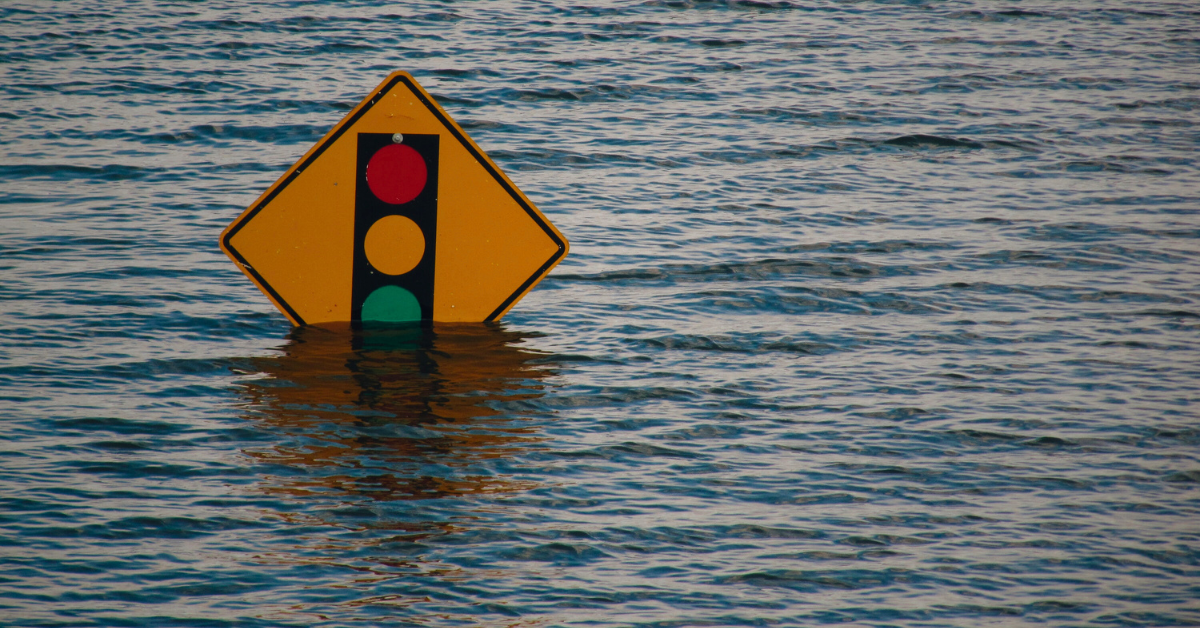All around us people are waking up to the apocalypse for the first time. Though the climate crisis has been here for some time, not all have come to grips with it, emotionally or spiritually. So as each new disaster strikes, the hot oceans, terrible storms, and red skies, each revelation brings climate chaos home to someone who had not known it would affect them personally. As I see people grappling with their new and terrible knowledge I wish I could offer a trail map as a gift from those of us who have been on this path a few years longer. I remember the first time I tried to push through a season of local wildfires, learning the hard way about the heavy toll of smoke on lungs, red sky on psyche, tragedy on emotions. It is so hard to feel helpless before the raging of the climate emergency, and we need to take care of one another in these vulnerable times. Our hard won lessons may not add up to a whole trail map for such a rapidly changing landscape, but let them serve as signposts on the road to survival.
Do look in on your neighbors
Make sure they have what they need. Smoke, heat, and storms can all kill, especially those who are elderly, unhoused, or otherwise vulnerable. Open your home to neighbors in need, or make your church into a drop-in station like the libraries and other public buildings. Redistribute some funds to allow those who are poor to get what they need. Or get involved in planning for future resilience so that your community is ready when the next disasters strike.
Don’t neglect your physical needs
Seek shelter for yourself, hydrate, use a highly rated mask for smoke, and admit your own limits. Call off work if you can, if you need to. Be mindful too of the emotional strain that comes from living through disasters; crying dehydrates and exhausts us. Drink water and rest.
Do grieve
Weep for the cities flooded, the neighborhoods burned, the coral dying, the polar bears displaced along with so many other refugees, human and non-human. Hold a memorial service for the centuries-old tree that was lost in your neighborhood. Mourn, together and publicly, for the myth of human progress that is being buried under our rising seas. Lament the hopes we had in human goodwill to just do the right thing and fix this. Those hopes are dead, and they deserve a fitting funeral.
Don’t forget
Remember those who have stood here before, and have made it through. Some people of privilege are so shocked by the promise of devastation they forget that people have survived after terrible tragedy and loss. Never before has all of humanity been in such danger, but it is not the first time a people has lived after the end of the world as they knew it. The indigenous people of America have been living in a post-apocalyptic landscape since about 1492. Don’t forget your ancestors who survived the Middle Passage or the concentration camps. To despair would be to dishonor them.
Do take responsibility
We are deeply in debt. We have been burning through the resources laid down hundreds of millions of years ago at an unsustainable rate, but we have hit our limit and the payments are now overdue. The wealth that we may have today is mostly accumulated through extractive violence against the earth. We must now spend it in quite the opposite direction, learning to deposit rather than withdraw.
Do lament
Read all the angry Psalms. Meditate on them and preach them. Focus on the scriptures that come out of the places of deepest pain, exile and oppression. Pray with your hand raised in a fist, saying “O merciful God, what the ____?” Do not apologize for your curses. Prophets have always been criticized for the salt in their language. Risk alienating the polite elders of your community for the sake of the young people who are actively, desperately, deeply angry about all this climate shit.
Don’t try to do it all alone
Get connected. Find out who is doing good climate work locally, or in your networks of organizations. Connect with them. Follow them on social media, sign up for their listservs, and give them money. It is much easier to get started when you know what others are already doing.
Do act
Show up at a protest, call your representatives, divest your funds from fossil fuel companies, invest in solar panels. Spend your time and energy on the things that can make a difference. Join a Green Team or start one; there are people who will help you get started. Demand a climate action plan for your town. At the very minimum make noise about it.
Don’t think you need to fit yourself into a particular model of activism
We are all activists now, but each in our own way. And some of us are introverts. Not everyone needs to get arrested for civil disobedience; others can lurk nearby, learning about it for next time, or just make themselves ready to post bail. The climate crisis calls us all, but we are all called by God differently. We need people researching, reading, writing policies, and suing the corporations. We need teachers and farmers and musicians putting all their skills and talents to bear on the questions of the climate crisis. We need pastors and counselors sitting with the depth of grief. Your extroverted friend may seem like a “good activist” because she always shows up and yells loudly, but perhaps you can work on your research project with the same intensity of caring. Spend time discerning where God is calling you in your work and non-work hours. Talk about the discernment process and share it especially with the young people trying to choose a major when “saving the world” is not an available course.
Do live faithfully as stewards of our resources
Humanity’s first vocation was gardener. Take care of the garden, and the compost, and the watershed and the creatures. Plant more trees and create less trash. Live simply, being content with enough. Do this with love, joy, and faithfulness.
Don’t get bent out of shape about the little things
Corporate polluters would love you to be passionately obsessed about your personal responsibility. Fossil fuel companies love it when we focus on plastic straws. It is a smoke screen that keeps us busy while they continue to dump massive amounts of carbon in the atmosphere. Do not waste any of your rage or passion on the little things. Do not use up your “save the world” energy on the things your sibling throws in her personal garbage can. Put that energy on collective action instead.
Do research
Look at the top climate solutions and find out more about how they work. Study the way ecosystems come back after disaster. Study the way people can learn to work together for good. Learn how to see people as beneficial for the environment, not as the only enemy. Read deep into the agrarian roots of our faith and specifically learn how God calls us to take care of the land.
Don’t despair
Our best efforts will not stop the climate crisis. All our best work now is toward mitigation. But that means every single thing we do is life-saving. Every degree Fahrenheit can be measured in millions of lives, human and non-human siblings who are vulnerable. So every small success deserves to be seen as heroic. We cannot stop the shipwreck but we can prepare the lifeboats. So do it with your whole heart.
Do look to the children
Children and young adults have been leading us in major activism campaigns. They have the most at stake. Their future is grim, yet they are determined and strong. Support them. Encourage them. Follow their lead.
Don’t tell the children that your hope is in them
They hate this. Like young cancer patients, they are not performing this fight to inspire you. They are doing it to save their own lives. If they happen to inspire you anyway, and you feel an urge to express it, please show them rather than tell them. Give them money instead, for their crowdfunded campaigns and their mutual aid networks.
Do hope
Read cli-fi (climate fiction) and hopepunk and all the utopias. Read about the kingdom of heaven. Write some more, perhaps. Paint it and dream it and don’t let go of it. Our future may be unimaginable right now, but imagination itself is one of the coolest gifts God gave us.
Don’t give up
Just don’t. Be determined. Be joyful. Know that God is going through this with us and will not leave us alone. Be the hands and feet of God, marching and gardening and holding one another gently.
Do pray
Ask for a blessing. Ask for a miracle. Ask for the strength to get through one more day. Ask. Never weary of asking. Seek, and knock, and yell, whatever it takes to keep the line open to God. God is with us and will never leave us to face our perils alone.
Select bibliography:
Project Drawdown, www.drawdown.org
Debra Rienstra, Refugia Faith. (Fortress Press, Minneapolis, 2022)
adrienne maree brown, Emergent Strategy. (AK Press, Edinburgh, 2017)
Robin Wall Kimmerer, Braiding Sweetgrass. (Milkweed Editions, Minneapolis, 2015)
Ellen Davis, Scripture, Culture, and Agriculture. (Cambridge University Press, Cambridge, 2008)



